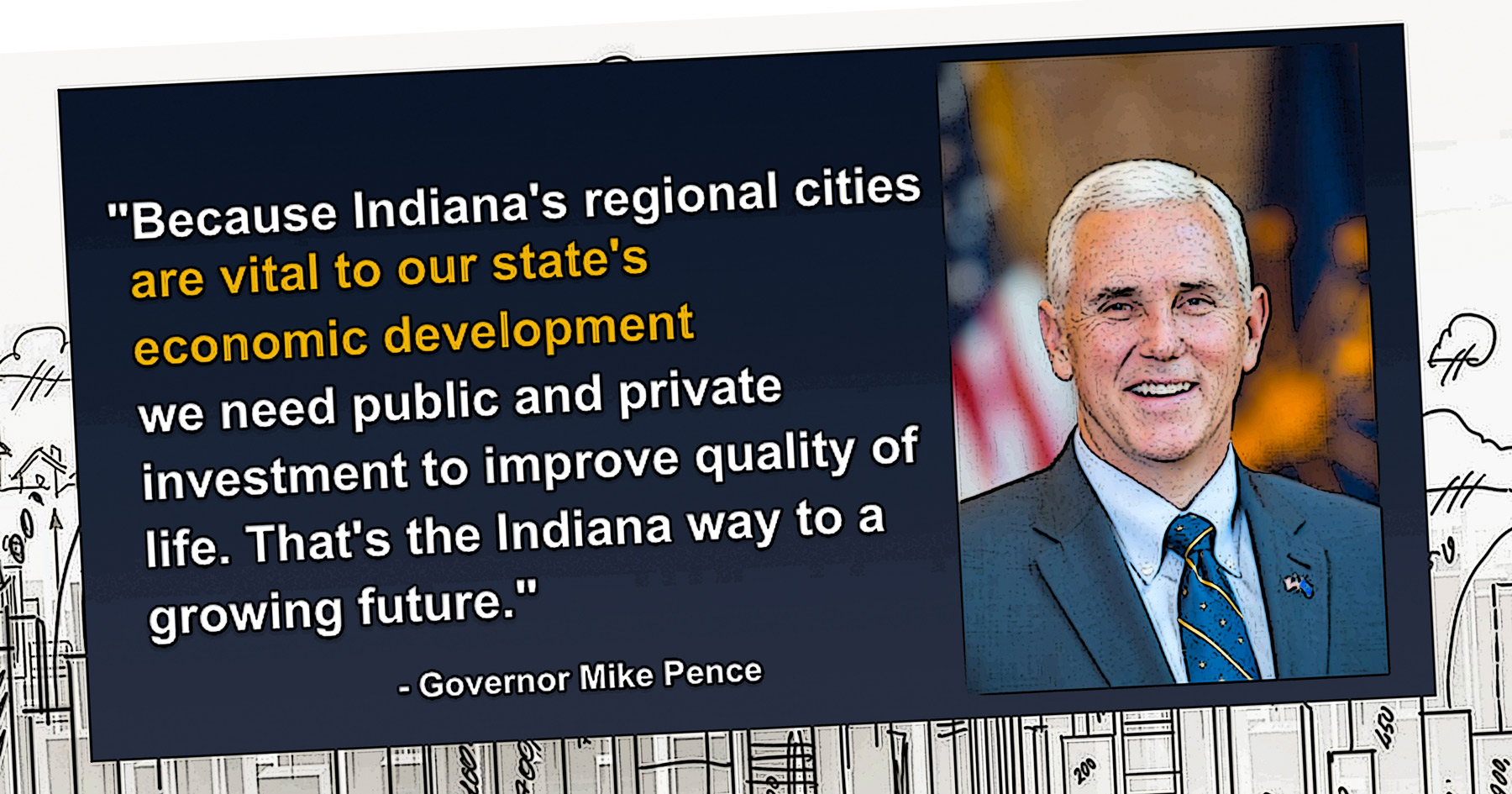People who spend other people’s money in Indiana are applauding their amazing ability to write big checks and hand them out.
The Regional Cities initiative — enacted by the Republican legislature and heralded by the Republican governor — just awarded grants of $42 million of taxpayer dough to three of seven county consortia in the Hoosier State.
“This is big. This is a big deal in Indiana,” Gov. Mike Pence told reporters, “and I believe it’s part of a third century strategy for growth that will pay dividends for generations.”
Really? Government redistribution will fuel “growth” . . . and “pay dividends”?
The more-spending “strategy” is “geared toward quality of life projects ranging from economic development and job creation, to improved recreational and arts opportunities,” according to WNDU-TV in South Bend, adding that, “The Regional Cities Initiative is aimed at the younger generation and giving those people more reasons to love — than leave the state.”
Love it or leave it, eh?
“The public has been told that we have some sort of $42-million jackpot to spend on wonderful things,” explains Fort Wayne City Councilman Jason Arp in his Indiana Policy Review. “What hasn’t been made clear is that with the award comes [an] obligation not only to match that $42 million with taxpayer and private money but a separate eight-year commitment to a portfolio of $1.4 billion in projects. . . .”
In other words, it’s a classic government-spends-our-money-better-than-we-can program.
The Regional Development Authority will, in the end, “have discouraged actual entrepreneurship, innovation and free enterprise,” Arp explains. In their place? A “sort of unaccountable directorate.”
Growing ever bigger to better spend our hard-earned dough.
This is Common Sense. I’m Paul Jacob.


